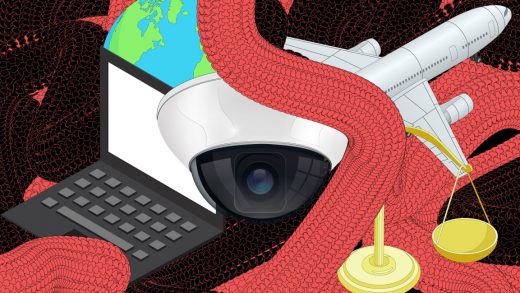5 questions that will determine how we survive the coronavirus crisis
In a moment of true crisis, the only logical response is to lower your head and tackle every issue head on. We’re smack dab in the middle of that moment right now. But whether the curve flattens in six weeks or 12, whether developing an effective vaccine takes eight months or 14, we’ll come out of the immediate crisis relatively soon. We’ll breathe a sigh of relief. We’ll resume our daily lives with more appreciation and gusto than ever.
And in many ways, that’s when the hard work really begins. American politics can be conspiratorial, but on the whole, our culture tends toward swaggering optimism. That’s a positive when it comes to our country’s entrepreneurialism, which is unrivaled in the world. But it can also blind us to what investors call tail risk. We hope for the best rather than prepare for the worst.
The rapid spread of COVID-19 in the United States is forcing us to reassess many of our assumptions about American society—and may transform our politics and culture in ways we’ve never even considered. As we turn the corner on this crisis, here are a few of the questions we should be asking ourselves—and some predictions for what comes next.
Is this pandemic a fluke or a sign of things to come?
If COVID-19 is a so-called black swan event—something that is both extremely rare and enormously impactful—it’s awful but we can survive it. Unfortunately, history tells us that pandemics aren’t really rare at all. In fact, they’re more like what experts call gray rhinos: highly probable, high-impact events whose evidence we tend to ignore. Worst of all, pandemics are only becoming more likely.
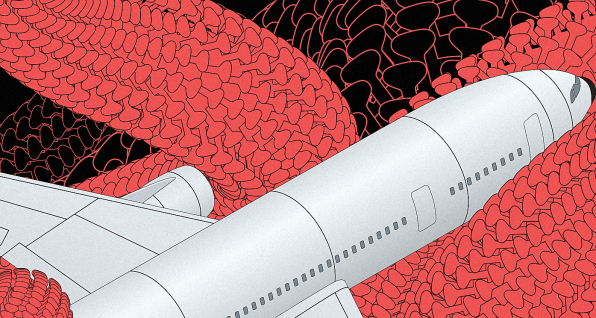
Fifty years ago, Americans were collectively flying about 100 billion miles within the United States each year. Now, that number is closer to 700 billion. All of that connectivity makes the world far smaller than it used to be—and more vulnerable to viruses that can spread across the planet at the speed of a Boeing 747. Yes, our lives are far better, overall, because of global supply chains and cheap travel. It also puts us more at risk.
So many of our technologies today are a double-edged sword. With the coronavirus crisis, open source data and 3D printing have allowed Good Samaritans to make respirator valves, face shields, and test swabs at home. Meanwhile, scientists are using the internet to crowdsource potential treatments. But democratized information can also be a weapon in the wrong hands. As we plan for the next pandemic, we can’t just assume it will happen naturally or randomly. Whether it’s known terrorist organizations or copycat killers admiring each other on 8Chan, another downside of being so connected is that there’s now a community for everything, even sociopaths. We need leaders who are able to think far enough ahead to anticipate how someone might re-create a dangerous pathogen on their own—and how we stop it.
Will COVID-19 help or hurt the social justice movement?
The poor will suffer from this tragedy far more than anyone else, and the American public is responding. As millions of Americans lose their jobs and health insurance, and the body count rises, opinion polls show growing support for progressive policies like single-payer healthcare. Even Republicans have embraced big government initiatives to combat the economic fallout. The new stimulus package passed in Washington allocates some $2 trillion in new spending, including direct cash payments and expanded unemployment insurance.
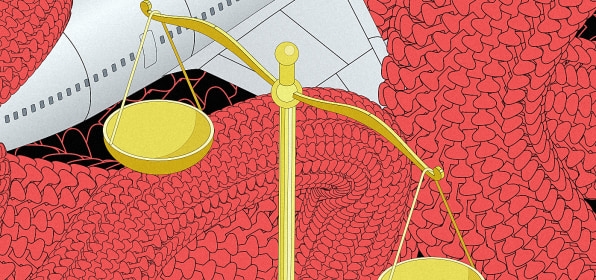
But overall, I suspect, the political left in the United States and abroad will have far less influence than they did even a month ago. In good times, people worry about addressing inequities. In scary times, people hunker down and worry about staying safe. That’s why Donald Trump’s polling has risen. It’s also one reason Bernie Sanders’s candidacy ended the moment the coronavirus became a serious threat.
An exceptional leader may be able to take big ideas like universal healthcare, universal basic income, or government control over private sector pricing and sell them to Congress and to the public. But given the matchup of Joe Biden vs. Trump in November, radical change is not likely to be on the agenda.
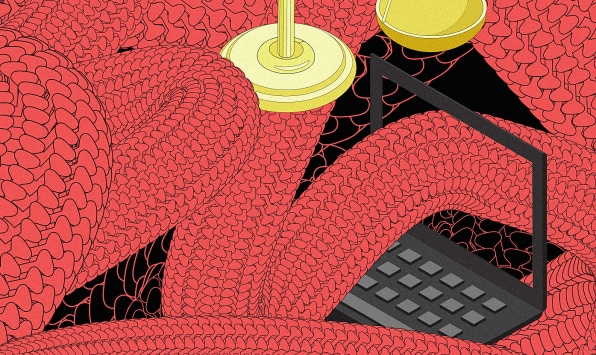
What does remote work mean for the future of urbanism?
The long-term trend toward urban living is unlikely to be reversed in the wake of COVID-19. Creating a permanent layer of social distancing isn’t feasible—not to mention bad for the environment. Still, mitigating the risk of pandemics will have to become part of our thinking about zoning decisions, urban planning, architecture and design, building inspections, and every other aspect of our physical lives. That’s why embracing technology that can provide some protection is so important. Whether it’s remote working, mobile voting, self-driving vehicles, telehealth, or telereligion, we’re going to need innovations that empower us to isolate even in the densest cities. Silicon Valley and tech in general has been a punching bag for the media and politicians for the past few years, but if we want to adapt the economy to survive in an age of pandemics, we’re going to need the tech sector more than ever.
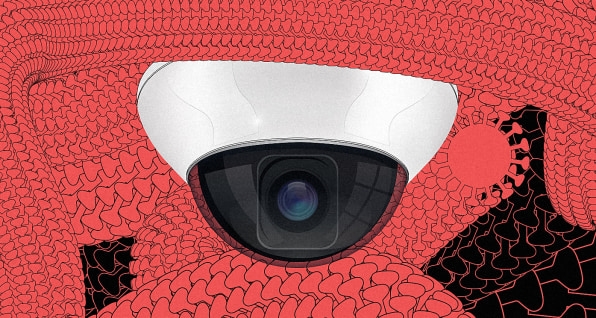
Are greater security and prosperity worth the cost?
In a crisis, we want strong institutions and confident leaders to tell us what to do (and that we’re going to be okay). That’s why leaders who often seem overly pugnacious during normal times (like New York Governor Andrew Cuomo) are especially appealing and effective in times like this. With the federal government struggling to stay ahead of the coronavirus, private sector leaders and tech companies have stepped in to fill the power vacuum.
Of course, the crisis mentality can be exploited, too. Just look at Hungary, where Prime Minister Viktor Orbán has seized power and suspended democratic institutions. Or consider China, where the government is using mass surveillance and phone tracking to control the outbreak. In the U.S., there are leaders who are genuinely trying to protect people, leaders who are trying to protect their own political careers, and everything in between.
Our job is to distinguish between which policies are well-intentioned and necessary, and which are only designed to help a politician secure more power. If new ideas to protect against pandemics require increased surveillance or phone tracking or temperature checkpoints, do we accept them as necessary? Or do we view them skeptically as intrusions on personal liberties? Distinguishing between the two won’t be easy.
Will coronavirus awaken us to the climate change crisis? Or does it prove we’re too selfish to take collective action?
The global response to climate change would tell us, unfortunately, that the answer is no. Even when we see something awful unfolding before our eyes like wildfires in Australia or floods in Louisiana and Texas, we still tend to make self-interested choices (buying a new refrigerator, driving to the mall, turning on the air conditioner) that only exacerbate the problem. The human brain isn’t built to “think globally but act locally,” at least not in the way that environmentalists would like.
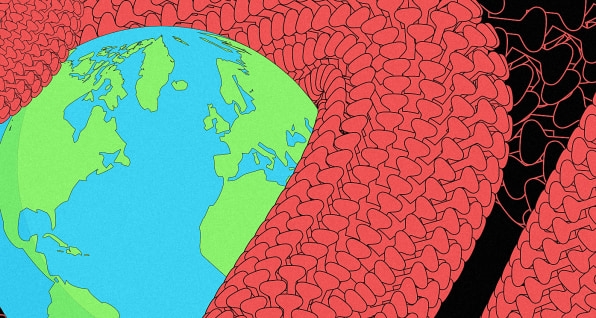
In the past few weeks alone, we’ve witnessed example after example of our inability to embrace the greater good, whether it’s China lying about the number of infections and deaths, wealthy people ignoring shelter in place orders and fleeing to their country homes (full disclosure: we left New York City but before the orders came down), or politicians holding up the stimulus package to score points with their base. Anything requiring true shared sacrifice is going to take a series of truly exceptional, unique leaders across the globe, something we haven’t seen since the times of Churchill and Roosevelt.
Real leaders understand how to confront present challenges while preparing for the future. In the post-coronavirus era, we’ll need farsighted public servants and executives who can foresee what this pandemic means for society not just over the next decade, but over the next century.
By and large, these people may not be the obvious figures currently holding or running for office. We may not even know who they are yet. But spotting them when they do emerge may be the difference between preserving life as we know it and devolving into a world ruled by fiat and fear. Our ability to handle this crisis will determine the lives of millions. But our ability to anticipate and prevent the next one could easily determine the fate of us all.
Bradley Tusk is a venture capitalist, writer, philanthropist, and political strategist
(18)

